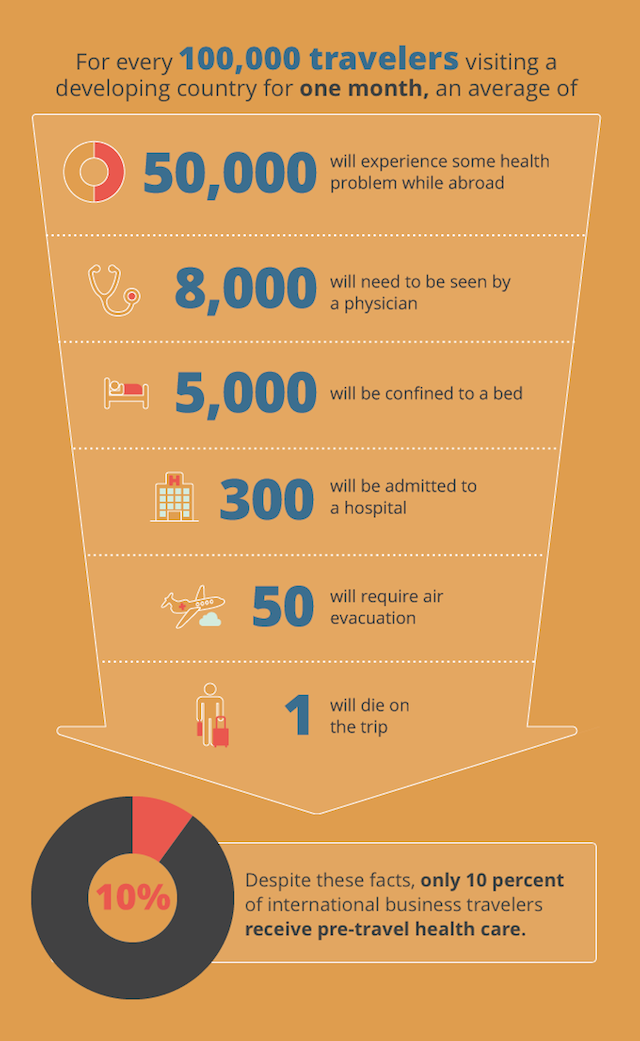Business Traveler Health Risk: CDC Estimates 50,000 Will Have Health Problems While Abroad

Traveling around the world for business has its perks, but your health may be at risk along the way. The Centers for Disease Control and Prevention (CDC) have put together a new publication called “Travelers’ Health: Ensuring Business Travel Is a Productive Asset” filled with eye-opening statistics and advice to protect the health of those who travel on business.
An estimated 5.1 million United States residents travel outside of the country for business, and according to the CDC, this opens them up to a wide variety of health risks and financial burdens for employers. With only 10 percent of international business travelers receiving pre-travel health care, health problems can drastically threaten the well-being of U.S. travelers.
The average age for business travelers is 45.9 years old, according to the U.S. Travel Association, and for every 100,000 travels, 50 percent will experience a health problem within a month. In 2013, the direct spending on business travel by both domestic and international employees totaled to $266.5. International traveling alone supported about 1.2 million U.S. jobs and $29.5 billion in wages.
The CDC warns that, even though business travel remains as a profitable and important component to our business development, it also comes with many health risks. Of the 100,000 travelers each month, 8,000 will need to see a physician and an additional 300 will becomes so ill or injured that they’ll require hospitalization. One person will even die due to a health-related problem abroad, statistics find.

The average burdening cost of an adult health care payer to treat malaria, for example, is $25,250 along with six to 24 business days lost. Meanwhile, had the business traveler only taken the necessary preventive steps, they would’ve only dug $162 out of their pockets.
Costs are often acquired by the employer. Let’s say you come into contact with hepatitis A. The cost for treatment would be around $2,500, but if the traveler just received two doses of a preemptive hepatitis A vaccine, it’d only cost $300. For a two-week trip, the average business traveler could pay $15 to $370 for medical evacuation insurance, or they could risk going uninsured and pay between $25,000 to $250,000 if they needed to be airlifted to a hospital or the like, which 50 out of every 100,000 travelers will need.
The CDC’s Travel Health resources have been made available in print, mobile, online, and in eBook format in order to have a “trusted, in-depth travel medicine reference” on hand.



























